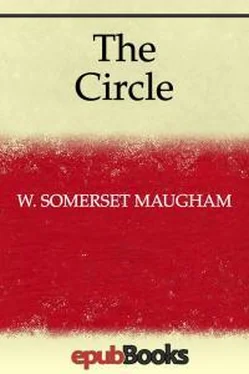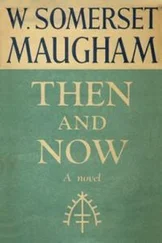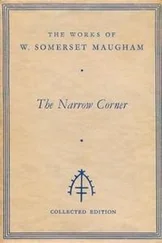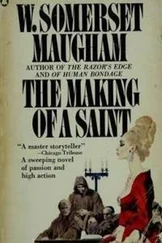ARNOLD. I wonder if you realise what it was to grow up under the shadow of that horrible scandal. Everywhere, at school, and at Oxford, and afterwards in London, I was always the son of Lady Kitty Cheney. Oh, it was cruel, cruel!
ELIZABETH. Yes, I know, Arnold. It was beastly for you.
ARNOLD. It would have been bad enough if it had been an ordinary case, but the position of the people made it ten times worse. My father was in the House then, and Porteous—he hadn't succeeded to the title—was in the House too; he was Under–Secretary for Foreign Affairs, and he was very much in the public eye.
ANNA. My father always used to say he was the ablest man in the party. Every one was expecting him to be Prime Minister.
ARNOLD. You can imagine what a boon it was to the British public. They hadn't had such a treat for a generation. The most popular song of the day was about my mother. Did you ever hear it? "Naughty Lady Kitty. Thought it such a pity … "
ELIZABETH. [ Interrupting. ] Oh, Arnold, don't!
ARNOLD. And then they never let people forget them. If they'd lived quietly in Florence and not made a fuss the scandal would have died down. But those constant actions between Lord and Lady Porteous kept on reminding everyone.
TEDDIE. What were they having actions about?
ARNOLD. Of course my father divorced his wife, but Lady Porteous refused to divorce Porteous. He tried to force her by refusing to support her and turning her out of her house, and heaven knows what. They were constantly wrangling in the law courts.
ANNA. I think it was monstrous of Lady Porteous.
ARNOLD. She knew he wanted to marry my mother, and she hated my mother. You can't blame her.
ANNA. It must have been very difficult for them.
ARNOLD. That's why they've lived in Florence. Porteous has money. They found people there who were willing to accept the situation.
ELIZABETH. This is the first time they've ever come to England.
ARNOLD. My father will have to be told, Elizabeth.
ELIZABETH. Yes.
ANNA. [ To ELIZABETH. ] Has he ever spoken to you about Lady Kitty?
ELIZABETH. Never.
ARNOLD. I don't think her name has passed his lips since she ran away from this house thirty years ago.
TEDDIE. Oh, they lived here?
ARNOLD. Naturally. There was a house–party, and one evening neither Porteous nor my mother came down to dinner. The rest of them waited. They couldn't make it out. My father sent up to my mother's room, and a note was found on the pincushion.
ELIZABETH. [ With a faint smile. ] That's what they did in the Dark Ages.
ARNOLD. I think he took a dislike to this house from that horrible night. He never lived here again, and when I married he handed the place over to me. He just has a cottage now on the estate that he comes to when he feels inclined.
ELIZABETH. It's been very nice for us.
ARNOLD. I owe everything to my father. I don't think he'll ever forgive me for asking these people to come here.
ELIZABETH. I'm going to take all the blame on myself, Arnold.
ARNOLD. [ Irritably. ] The situation was embarrassing enough anyhow. I don't know how I ought to treat them.
ELIZABETH. Don't you think that'll settle itself when you see them?
ARNOLD. After all, they're my guests. I shall try and behave like a gentleman.
ELIZABETH. I wouldn't. We haven't got central heating.
ARNOLD. [ Taking no notice. ] Will she expect me to kiss her?
ELIZABETH. [ With a smile. ] Surely.
ARNOLD. It always makes me uncomfortable when people are effusive.
ANNA. But I can't understand why you never saw her before.
ARNOLD. I believe she tried to see me when I was little, but my father thought it better she shouldn't.
ANNA. Yes, but when you were grown up?
ARNOLD. She was always in Italy. I never went to Italy.
ELIZABETH. It seems to me so pathetic that if you saw one another in the street you wouldn't recognise each other.
ARNOLD. Is it my fault?
ELIZABETH. You've promised to be very gentle with her and very kind.
ARNOLD. The mistake was asking Porteous to come too. It looks as though we condoned the whole thing. And how am I to treat him? Am I to shake him by the hand and slap him on the back? He absolutely ruined my father's life.
ELIZABETH. [ Smiling. ] How much would you give for a nice motor accident that prevented them from coming?
ARNOLD. I let you persuade me against my better judgment, and I've regretted it ever since.
ELIZABETH. [ Good–humouredly. ] I think it's very lucky that Anna and Teddie are here. I don't foresee a very successful party.
ARNOLD. I'm going to do my best. I gave you my promise and I shall keep it. But I can't answer for my father.
ANNA. Here is your father.
[ MR. CHAMPION–CHENEY shows himself at one of the French windows.
C.–C. May I come in through the window, or shall I have myself announced by a supercilious flunkey?
ELIZABETH. Come in. We've been expecting you.
C.–C. Impatiently, I hope, my dear child.
[ MR. CHAMPION–CHENEY is a tall man in the early sixties, spare, with a fine head of gray hair and an intelligent, somewhat ascetic face. He is very carefully dressed. He is a man who makes the most of himself. He bears his years jauntily. He kisses ELIZABETH and then holds out his hand to ARNOLD.
ELIZABETH. We thought you'd be in Paris for another month.
C.–C. How are you, Arnold? I always reserve to myself the privilege of changing my mind. It's the only one elderly gentlemen share with pretty women.
ELIZABETH. You know Anna.
C.–C. [ Shaking hands with her. ] Of course I do. How very nice to see you here! Are you staying long?
ANNA. As long as I'm welcome.
ELIZABETH. And this is Mr. Luton.
C.–C. How do you do? Do you play bridge?
LUTON. I do.
C.–C. Capital. Do you declare without top honours?
LUTON. Never.
C.–C. Of such is the kingdom of heaven. I see that you are a good young man.
LUTON. But, like the good in general, I am poor.
C.–C. Never mind; if your principles are right, you can play ten shillings a hundred without danger. I never play less, and I never play more.
ARNOLD. And you—are you going to stay long, father?
C.–C. To luncheon, if you'll have me.
[ ARNOLD gives ELIZABETH a harassed look.
ELIZABETH. That'll be jolly.
ARNOLD. I didn't mean that. Of course you're going to stay for luncheon. I meant, how long are you going to stay down here?
C.–C. A week.
[ There is a moment's pause. Everyone but CHAMPION–CHENEY is slightly embarrassed.
TEDDIE. I think we'd better chuck our tennis.
ELIZABETH. Yes. I want my father–in–law to tell me what they're wearing in Paris this week.
TEDDIE. I'll go and put the rackets away.
[ TEDDIE goes out.
ARNOLD. It's nearly one o'clock, Elizabeth.
ELIZABETH. I didn't know it was so late.
ANNA. [ To ARNOLD. ] I wonder if I can persuade you to take a turn in the garden before luncheon.
ARNOLD. [ Jumping at the idea. ] I'd love it.
[ ANNA goes out of the window, and as he follows her he stops irresolutely.
I want you to look at this chair I've just got. I think it's rather good.
C.–C. Charming.
ARNOLD. About 1750, I should say. Good design, isn't it? It hasn't been restored or anything.
C.–C. Very pretty.
ARNOLD. I think it was a good buy, don't you?
C.–C. Oh, my dear boy! you know I'm entirely ignorant about these things.
ARNOLD. It's exactly my period … I shall see you at luncheon, then.
[ He follows ANNA through the window.
C.–C. Who is that young man?
Читать дальше










